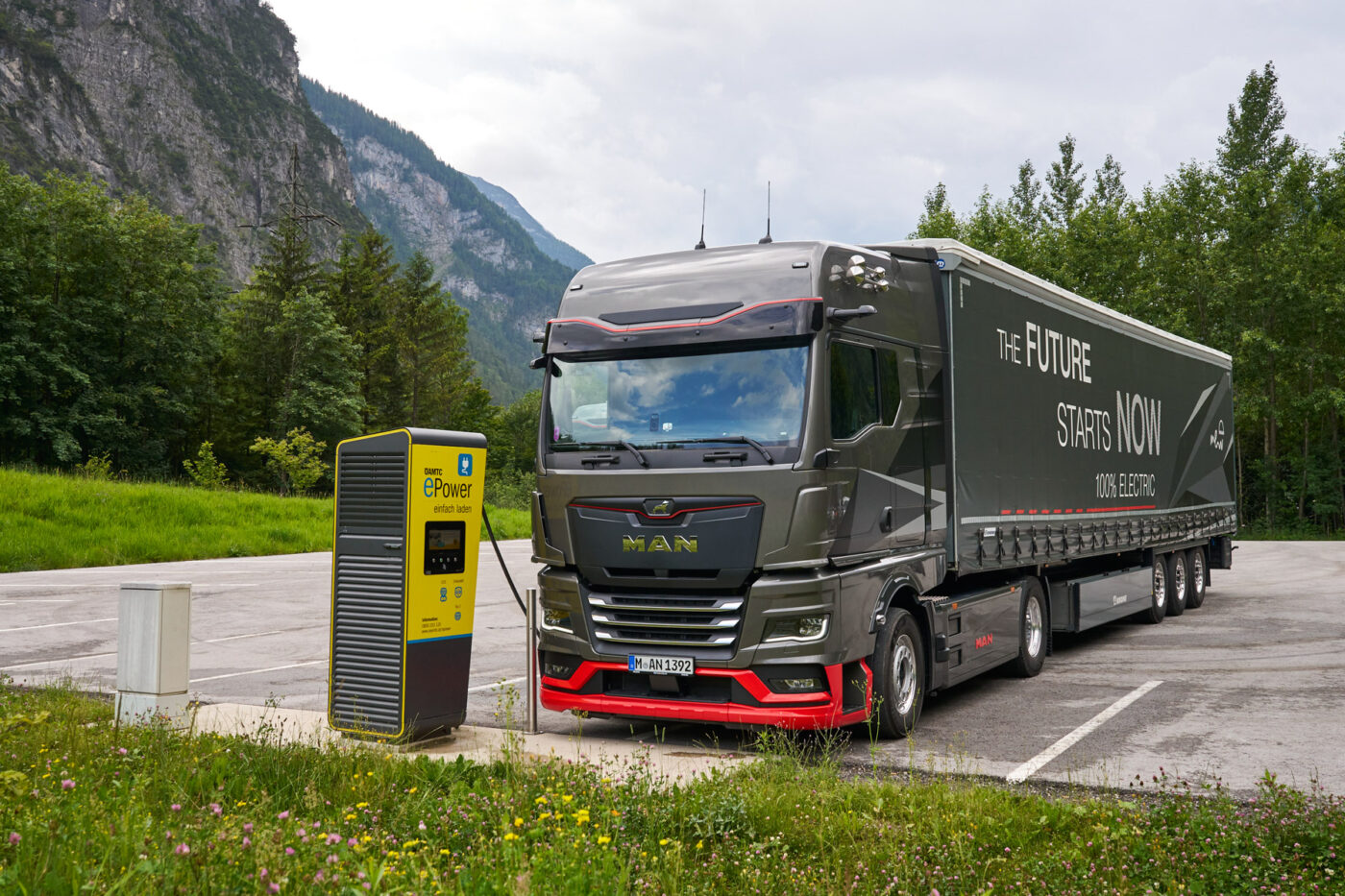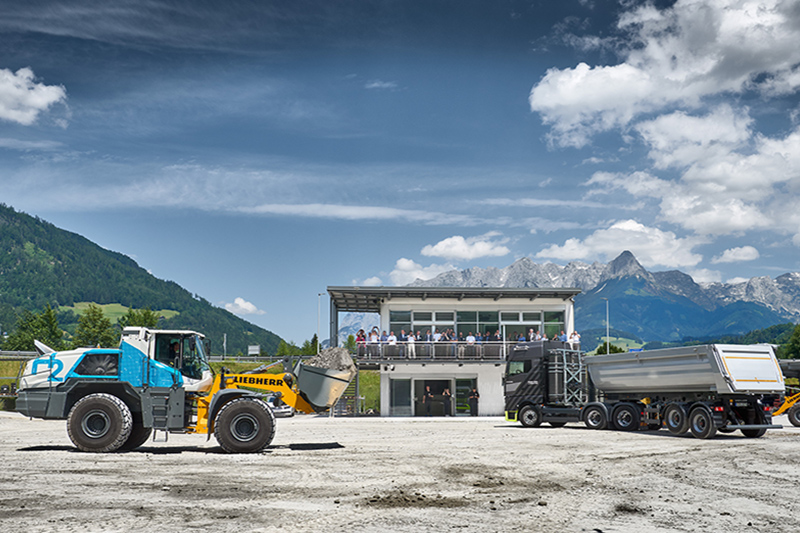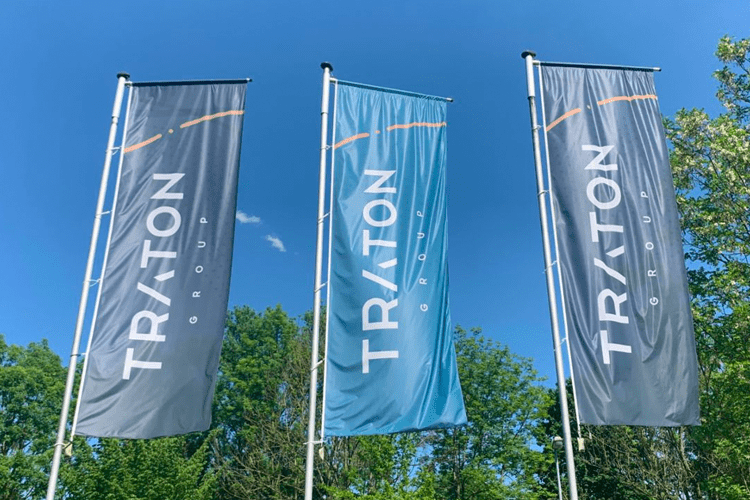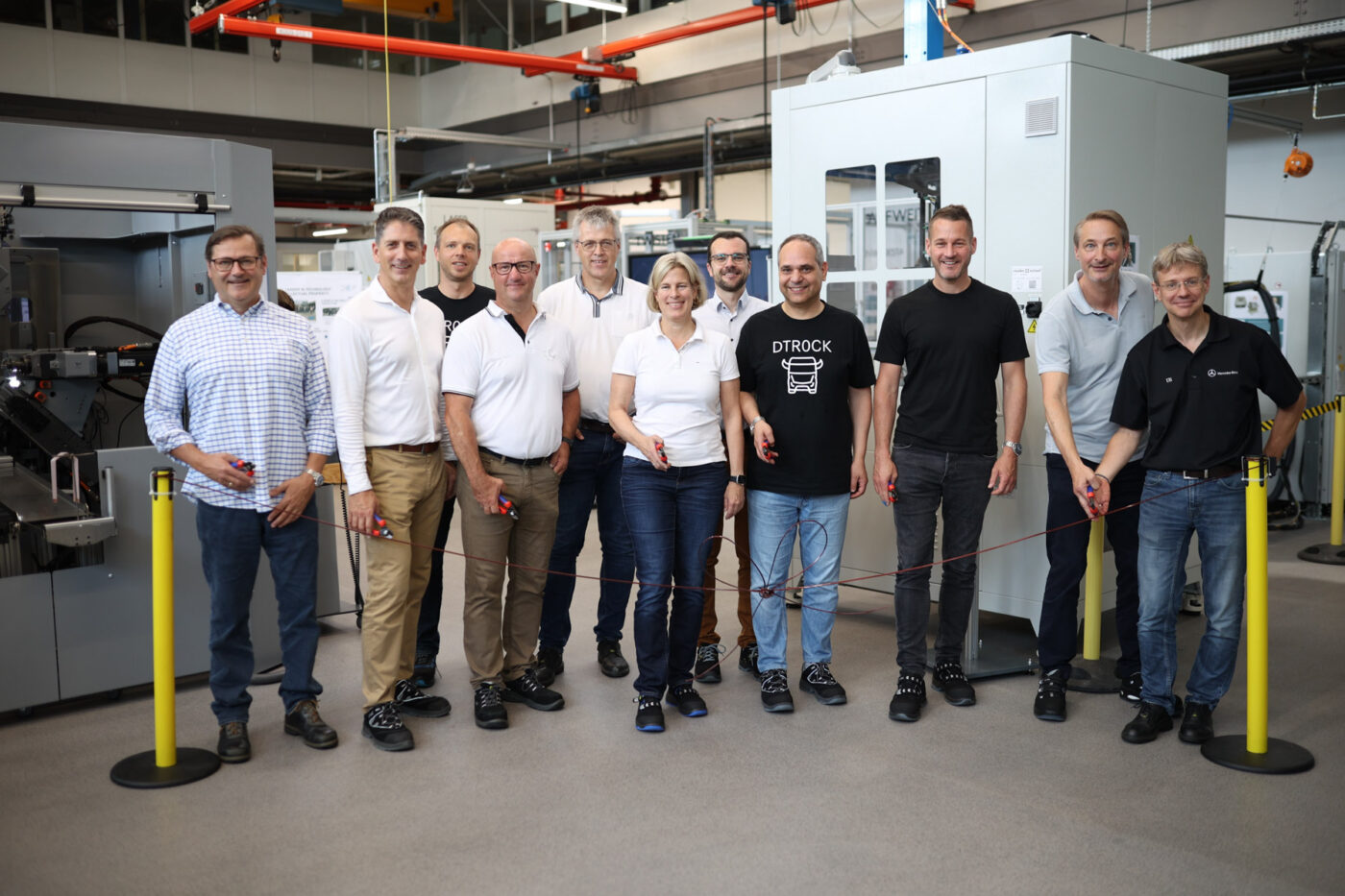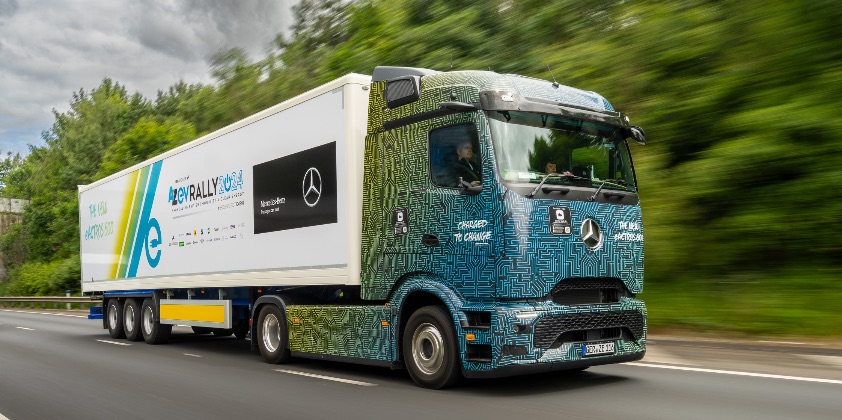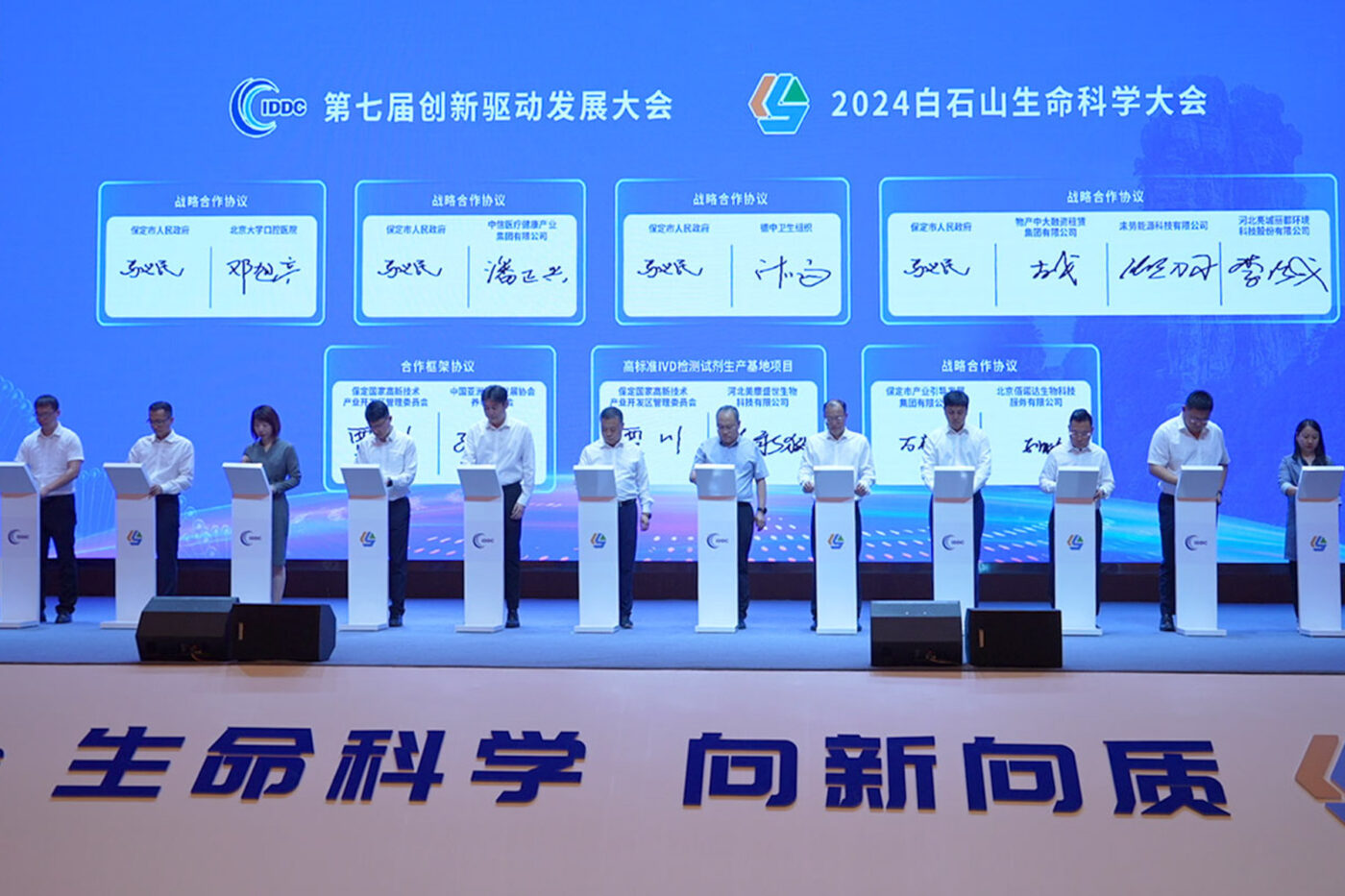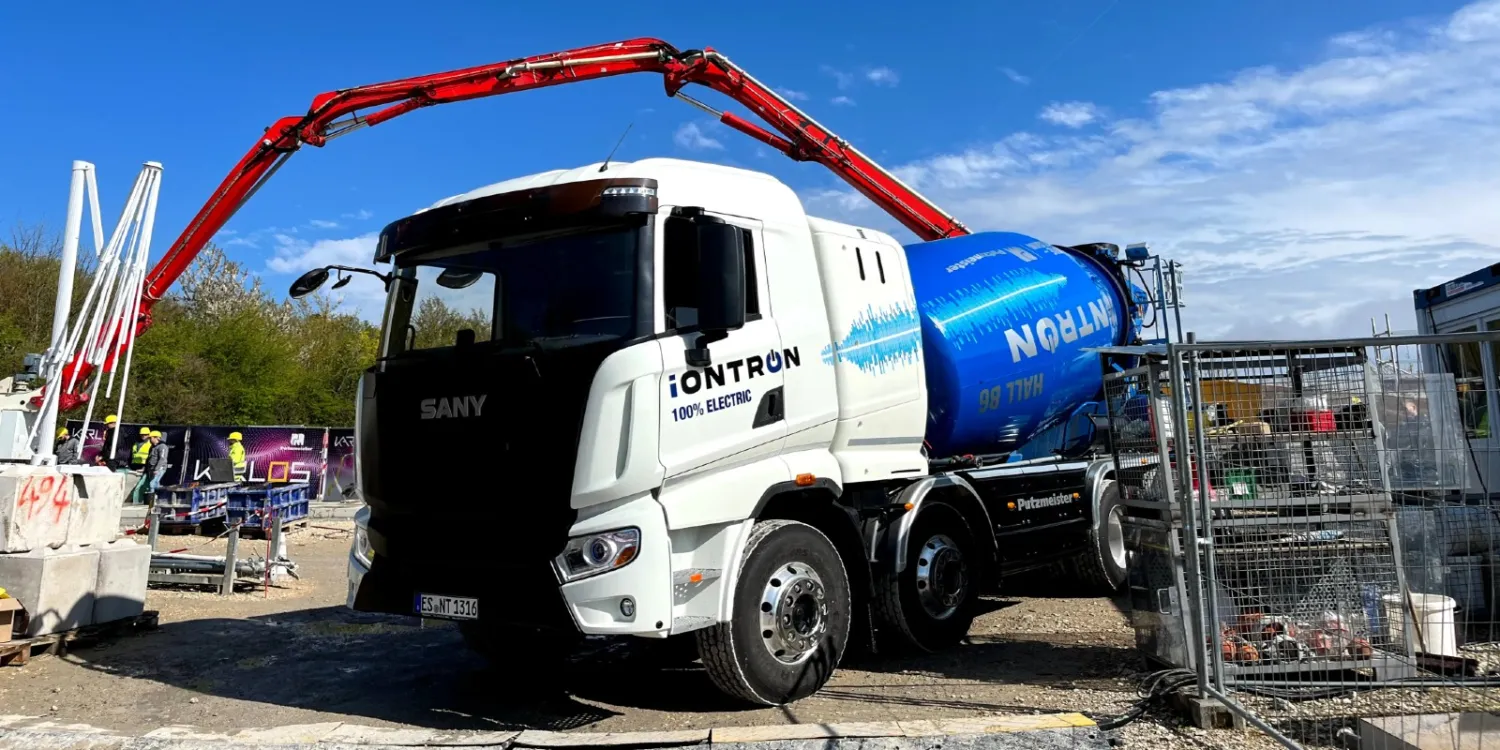MAN Truck & Bus has showcased its range of truck drive technologies in preparation for the IAA Transportation automotive trade show in Germany this autumn. The company is emphasizing electric trucks while continuing to develop diesel engines and introducing hydrogen combustion engines as a transitional solution. Hydrogen fuel cell electric trucks remain in development.
At a pre-event in Saalfelden, Austria, MAN, a subsidiary of Traton (a Volkswagen Group brand), presented vehicles equipped with optimized diesel engines, a new hydrogen combustion engine, and battery-electric drives. The company remains committed to developing hydrogen fuel cell electric trucks.
The MAN eTruck, available in eTGX and eTGS variants, is the highlight of MAN’s electric truck lineup. According to MAN, there are over 2,000 orders or inquiries for these models, including a recent order for 100 units from France. The eTGS variant, introduced at IFAT in April, along with other configurations, has increased the number of customizable variants to over one million.
MAN emphasizes the versatility of its new eTruck, featuring a modular battery concept, various wheelbases, cabs, auxiliary drives, and sector-specific equipment. The heavy-duty electric truck can handle more than regional routes, with a daily range of up to 800 kilometers achievable with a charging stop. The eTruck is also prepared for the upcoming MCS megawatt charging standard, capable of charging up to 1000 kW during the driver’s prescribed break.
“Even though the transition to CO2-free freight transport involves several drive technologies, our focus is clearly on electromobility as the main drive technology,” said Alexander Vlaskamp, CEO of MAN Truck & Bus. “The hydrogen combustion engine can be a useful addition for special applications, as can the fuel cell drive, which is currently still under development.” Vlaskamp reiterated the ongoing importance of diesel engines during the transition period. “The diesel drive will continue to play an important role throughout the entire transformation until it is completely replaced,” he said.
MAN aims for every second truck registered in Europe to be battery-electric by 2030. As part of the Traton Group, MAN collaborates with Daimler Truck and the Volvo Group through the Milence joint venture to develop suitable truck charging infrastructure. Internally, MAN is also working to electrify its service network.
This electrification goal aligns with the EU Commission’s requirements for reducing emissions from the trucking sector. The Commission mandates a 45% reduction in average emissions for trucks weighing 7.5 tonnes or more and coaches by 2030, increasing to 65% by 2035 and 90% by 2040, using 2019 emissions as a baseline. From 2035, these regulations will also apply to professional vehicles, such as refuse collection and construction vehicles. Truck trailer manufacturers must improve emissions by 10% by 2030, while 90% of new city buses must be emission-free by 2030, reaching 100% by 2035.
Vlaskamp detailed MAN’s strategy for balancing the production of electric and combustion engine trucks: “In the future, we will produce combustion engine and electric trucks on the same production line to respond flexibly to the shift in demand towards electric trucks.” He emphasized the need for a robust charging infrastructure to support the transition to electric trucks, stating, “The expansion of the charging infrastructure must be an absolute priority for politicians, infrastructure operators, and manufacturers.” The hydrogen combustion engine will serve as a supplementary solution for specific applications, such as heavy-duty transport or areas with challenging charging infrastructure, rather than as an alternative to electric trucks.

